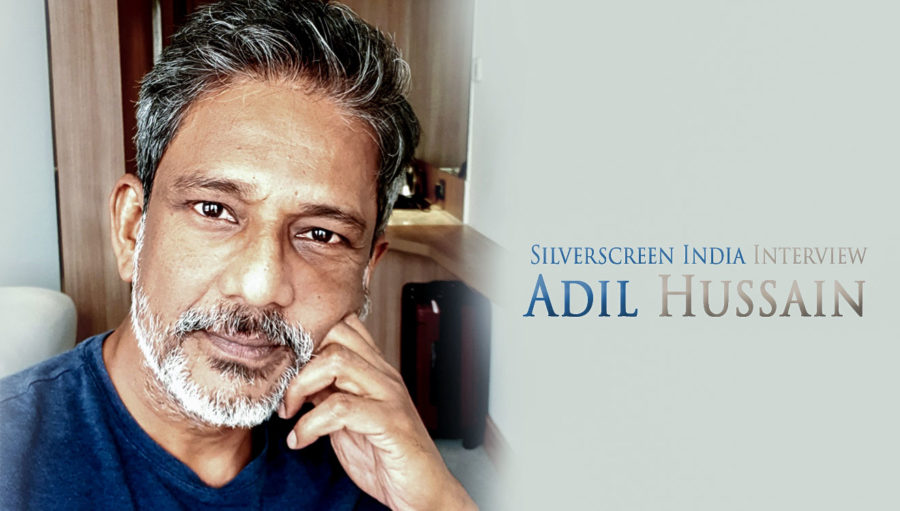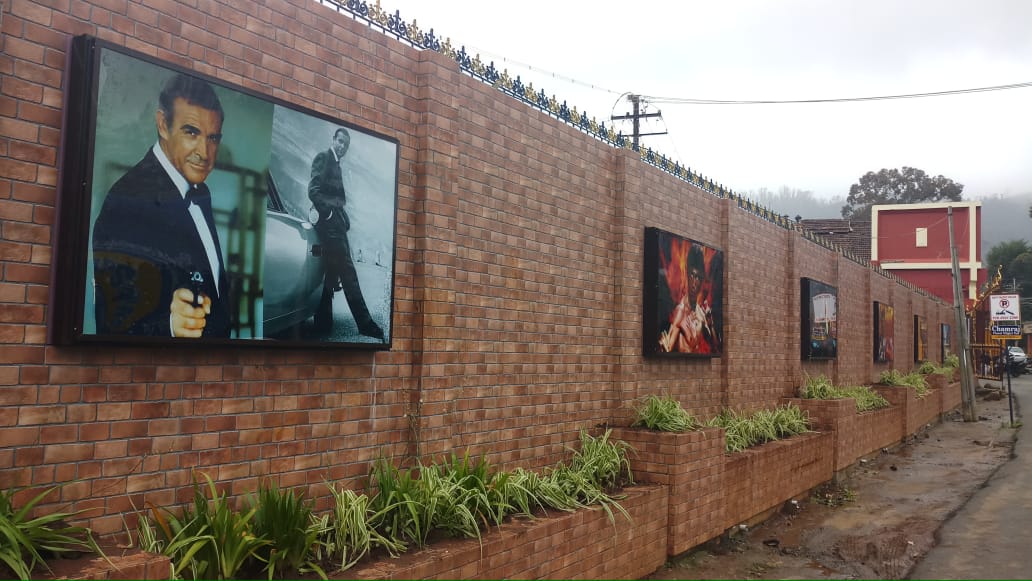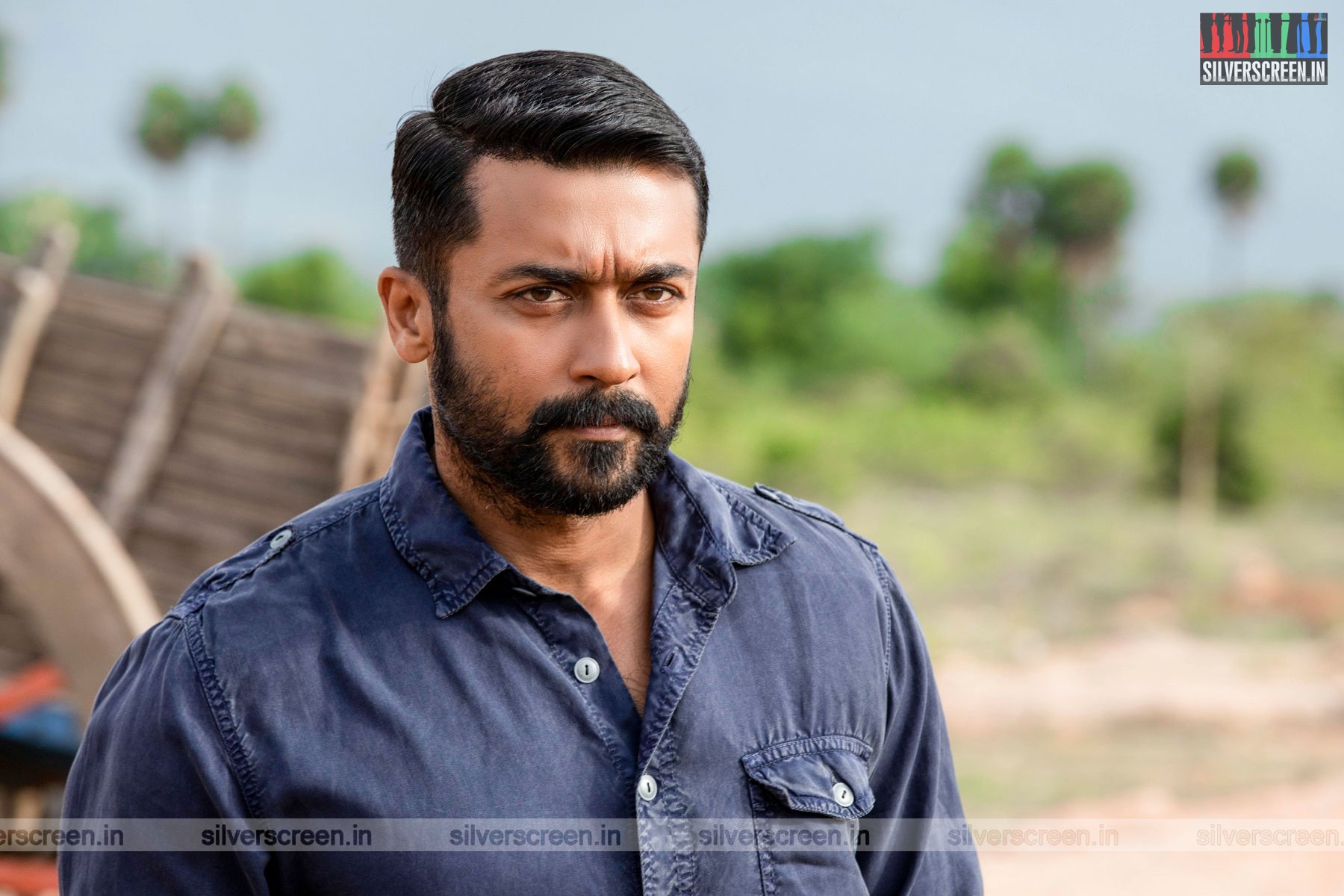In late September, Adil Hussain bagged the Best Actor award at the Indo-German Film Week in Berlin for his performances in Pareeksha and Nirvana Inn. In mid-October, the third season of Star Trek: Discovery, in which Hussain has starred in, was released.
The pilot episode opens with a shot of Hussain, waking up in Star Fleet pyjamas, switching off a holographic bird alarm clock, brushing his teeth with laser beams and proceeding to sit on a table. The camera then zooms into Hussain’s face as he hopefully waits for somebody, anybody, to show up.
One might assume Hussain is on cloud nine, but he remains as grounded as ever. This is a “pre-requisite and not a virtue”, he tells Swathy Iyer of Silverscreen India from his hometown in Goalpara, Assam, where he is shooting a film. The actor’s filmography, boasting of some impressive titles like Life Of Pi, Tigers and The Reluctant Fundamentalist, is peppered with several home-grown short and independent films, which he treats as his primary priority. Through these films, he feels he has “contributed to the society, artistically”.
His short film Meal recently won the Best Short Film award at the Ottawa Indian Film Festival.
“When they (independent filmmakers) approach me with a role, I feel I am lucky. For example, this film Meal– it’s a small, short film. It is small in terms of the length and the budget but artistically, it’s a huge film. So, am I not the person who gains by being in the film, by being able to experience the life of the role that the writer has written with so much passion? I feel grateful to them because they gave me an opportunity to act in a complexly written role. How many people get to do that?” he questions.
The commercial film titles in his filmography are only a means to an end, he says.
“It (the script) doesn’t necessarily need to have a social message or a political message, no. But it has to have a human message. Among the scripts that I read, I look at them to see which has an element of this particular aspect where the writer and director are digging deep into human behaviour and nature and the complexities of human interactions- it’s not black and white. Having said that, I also did films which are black and white. When I do commercial films- for instance, I do not want to name any of them- but when I do that, I needed money to subsidise my involvement in independent films because independent films do not have money. They need very little, but I want to participate in those films as well,” says Hussain.
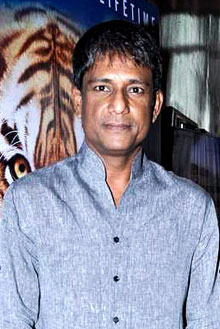
Hussain says a lot of his independent projects have come to him directly.
“My Twitter and Facebook messages are open, I get a lot of work through them. I keep it purposely open so that all these young, independent filmmakers, who are now exposed to world cinema and are looking at society critically and are trying to make films, have an avenue to get in touch with me,” he says.
“This should be normal for anybody.”
“Some people might consider you as a big actor, they may use such words, but I say it is important for any practitioner of the arts to keep their feet on the ground, it is a pre-requisite, not a virtue. It cannot be looked at as a virtue, I understand why they look at it as a virtue- because very few people do it. My version is that this is not a virtue at all. If you call yourself a practitioner of arts, if your feet are not on the ground then how will you see the nuances of life?”
“I do not depend on anybody else for picking scripts. That is completely my choice. Who else would know what are the complexities of my world view? Yes, there are some good friends who might know but they have other jobs!” Hussain chuckles.
“The choices that I make are the consequence of films that came to me. They chose me first and I chose them. It’s on equal ground. I don’t have an agent in India, neither did I have an agent in Hollywood till about three years ago. In Hollywood, I must have an agent otherwise nobody is going to work with me, that is the reason I have one otherwise, I wouldn’t. Agents, what they generally do is, they keep an eye out for roles which will suit my age, my description, my ethnicity, my acting capability and all that. In India, I don’t have an agent, I have a manager, who does not look out for work for me. So, I chose from the things which came my way, that must be kept in mind. If there is someone who is looking for me and if I am supposed to act in that, the universe will conspire. I completely, truly believe in that fact.”
The sense of humanity on Star Trek
Hussain, who calls himself a “keen observer” of the life around him, says he draws a lot from his personal experiences in his acting.
“If you’re a keen observer of life and if you’re an empath, then you see things that are happening around you. The body records everything whether you want it or not. The five senses are a miracle, they record everything, some things you remember, some things you forget. Our job as an actor is to equip ourselves with the tools to recall those forgotten things. That’s the training that I got from my teachers,” he says.
Even Star Trek, which is set in space, has strong human elements, according to him.
“This person in Star Trek had been waiting for somebody for 40 years in a spaceship. Have you not waited for someone to show up for at least an hour?”
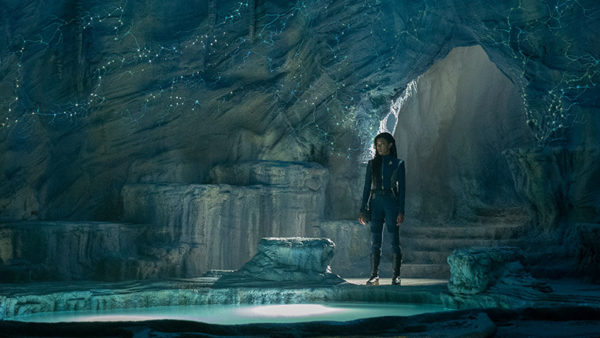
cbs
“I’m spoilt by that experience. The level of professionalism, the standard of precision and meticulousness is top-notch, high-end. Also, the most important thing, what touched me the most was the humanness of the stars who acted in Star Trek. They’re such great human beings. The essential theme of Star Trek is inclusiveness. This was the most beautiful experience I had- working with the actors, the director, producer, it was a great time,” he adds.
Goalpara, Assam and how it shaped him as an actor
Acting, says Hussain, came to him very naturally since he grew up in Goalpara. He first began acting at the age of eight, when he acted in a play in kindergarten and has continued to act since then.
“The town that I grew up in, where I am speaking from right now- Goalpara in Assam, is a very culturally vibrant place, there are lots of theatre groups, dance groups, music bands, folk theatre groups and folk dance groups, it’s a very culturally alive place and it still is, in a way. Lesser than before, but still there. So, it came naturally to me because I had seen my older brother performing and my neighbourhood friends and their brothers and sisters all participating in events and folk festivals and all that.”
However, Hussain’s father would have preferred it if his son became an English professor in Goalpara.
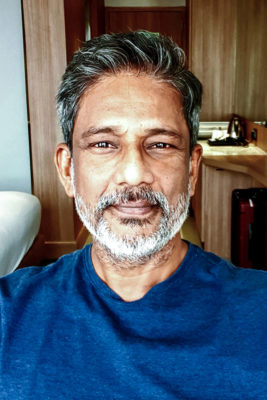
20201106_185130
“In terms of career, people thought that it would be a disaster to take that as your only option to earn money. My father did not approve of it, though he loved art and culture. He was worried how would I earn my living (laughs). So, he suggested I should do my masters in English and become a professor in English in the college in our town. But I refused to do that and I went ahead and continued to do theatre. Then I came to know about the National Institute of Drama,” he says.
“Before I went to the National Institute of Drama, when I was doing my graduation- which I did not complete by the way- during that time in Guwahati, which is 150 kms away from my hometown, there I started doing theatre. From theatre, I got opportunities to act in films. I acted in five to six films, radio plays, street plays, video films, tele films. In that period, I came to know about the National Institute of Drama. In those days without Google and all that, I came to know about it, I applied and got a seat. Thankfully the expenses were looked after by the government. At the institute if you get a seat, you get a scholarship. I was lucky enough, because otherwise my father wouldn’t have been able to afford it. So, Goalpara and Assam have played a very important role in my life in order to equip me with the vast experiences of theatre and acting, music and dance,” he says
How acting came to his rescue during a pandemic
“When you’re home for a long time, without any engagement and an uncertain future, in terms of work and resource earning as well, my entire training of becoming a decent actor- learning the craft decently enough- those things came very handy,” says Hussain.
Recommended
“There is an inner mechanism which I have been helped to discover by my teachers. No matter what the outside situation is, there is an inner mechanism which one can utilise in order to remain joyous in spite of the onslaught of different kinds of things happening around you.”
After several months of break from acting, Hussain is shooting the sequel of the hit 1969 Assamese film Dr. Bezbarua in Tezpur. In December, he will travel to Birmingham to begin shooting for British-Indian film Footprints On Water.
“All these projects, it just so happened that they got in touch with me through casting directors and I auditioned and the role was offered to me. There is no strategy behind it. The only strategy could be energy (laughs), that I had a strong desire to act in that script and somehow the universe conspired for me. That is the only way I can describe it,” he says.
